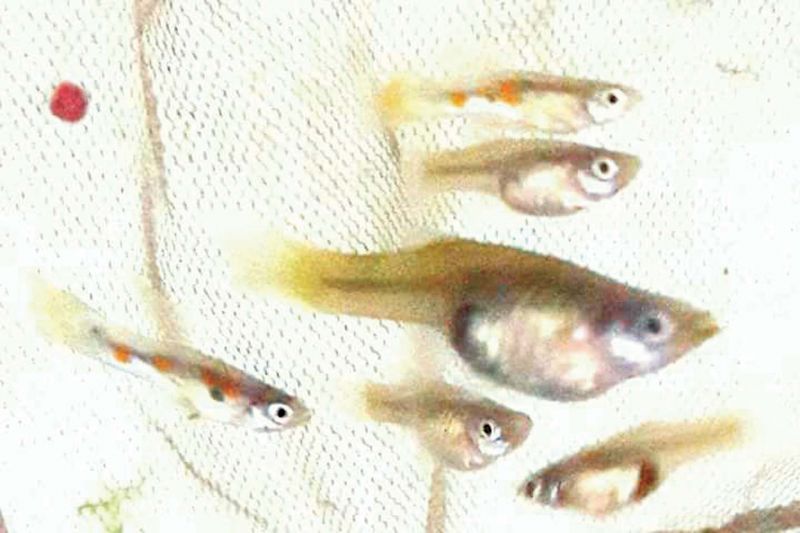Tamil Nadu: Guppy & Gambusia fishes can keep dengue at bay

Coimbatore: One of the tried and tested methods to fight dengue, rearing guppy and gambusia (fish) can help in keeping mosquito-borne diseases at bay. Officials from city health department and aquaculturists agree.
This comes at a time when the war against dengue has intensified in Coimbatore and across the state. Thanks to the unique ability of the fish to feed on mosquito larvae, that causes dengue. Both the fishes require only clean water and minimal maintenance to survive.
They can be placed almost anywhere, in water tanks, artificial ponds and even in containers that are used to store water. For the last three decades, Demetrius Issac, of Pegauss Farms has been keeping, scientifically breeding many rare species of fishes. He told DC that this concept of using ‘guppy, gambusia’ and other mosquito larvae eating fishes to combat dengue and mosquito-borne diseases was popular even 50 years ago.
Because of its advantages, Demetrius continues to rear ‘guppy, gambusia’ and the hybrid fish in the overhead tank at his home, According to him chemical options to keep tanks and water storage facilities can harm the flora and fauna around. Thus, ‘guppy and gambusia’ are a safe bet.
“Male guppies are smaller in size compared to their female counterparts. Highly adaptable, they have the ability to thrive in different environmental conditions. Both the varieties are live-bearing aquarium fish.”Demetrius says. In his farm that is located on the outskirts of Coimbatore, he is rearing a plethora of fish species and often distributes fish that feeds on mosquito larvae to the public for free.
 The fish species that eats mosquito larvae. (Photo: DC)
The fish species that eats mosquito larvae. (Photo: DC)
Follow basics to keep water borne diseases at bay: Experts
Experts from the medical fraternity and health department have advised the public to get basics right in order to keep water borne diseases at bay this monsoon season.
Right from ensuring that residential and commercial spaces are clean in storing water in air-tight containers per se, officials reiterate the need to do so as the same can go a long way in preventing outbreak of water-borne diseases. This comes in the backdrop of more rains predicted for Coimbatore and the state during the following week.
Normally, winter is the season for Aedes (dengue causing) type species of mosquito to thrive. Ironically, according to officials, there is a sharp decrease in number of cases of dengue and fever reported at Coimbatore Medical College and Hospital (CMCH).
“In August this year, we had, on an average between 60 and 80 new cases of dengue every day. Currently, we have about 40 cases reported daily. At the CMCH, as on Sunday afternoon, 39 patients are undergoing treatment for dengue while 217 are treated for fever. Nearly 50 per cent of dengue patients are from Tiruppur and the neighbouring cities.” Dr B. Asokan, dean, CMCH said. Despite more rains predicted, the doctor says Coimbatore is safe as only the coastal areas are impacted by the Northeast monsoon.
Meanwhile, City Health officer, Dr K. Santhoshkumar, assures that keeping water borne diseases under control is the priority of the Health department this season. As water stagnation is bound to happen, public must ensure, various source that attracts mosquitoes to lay eggs are destroyed.”Apart from ensuring that water containers at home are sealed, the public must ensure water tanks in their respective homes and commercial spaces are routinely cleaned,” he said.

